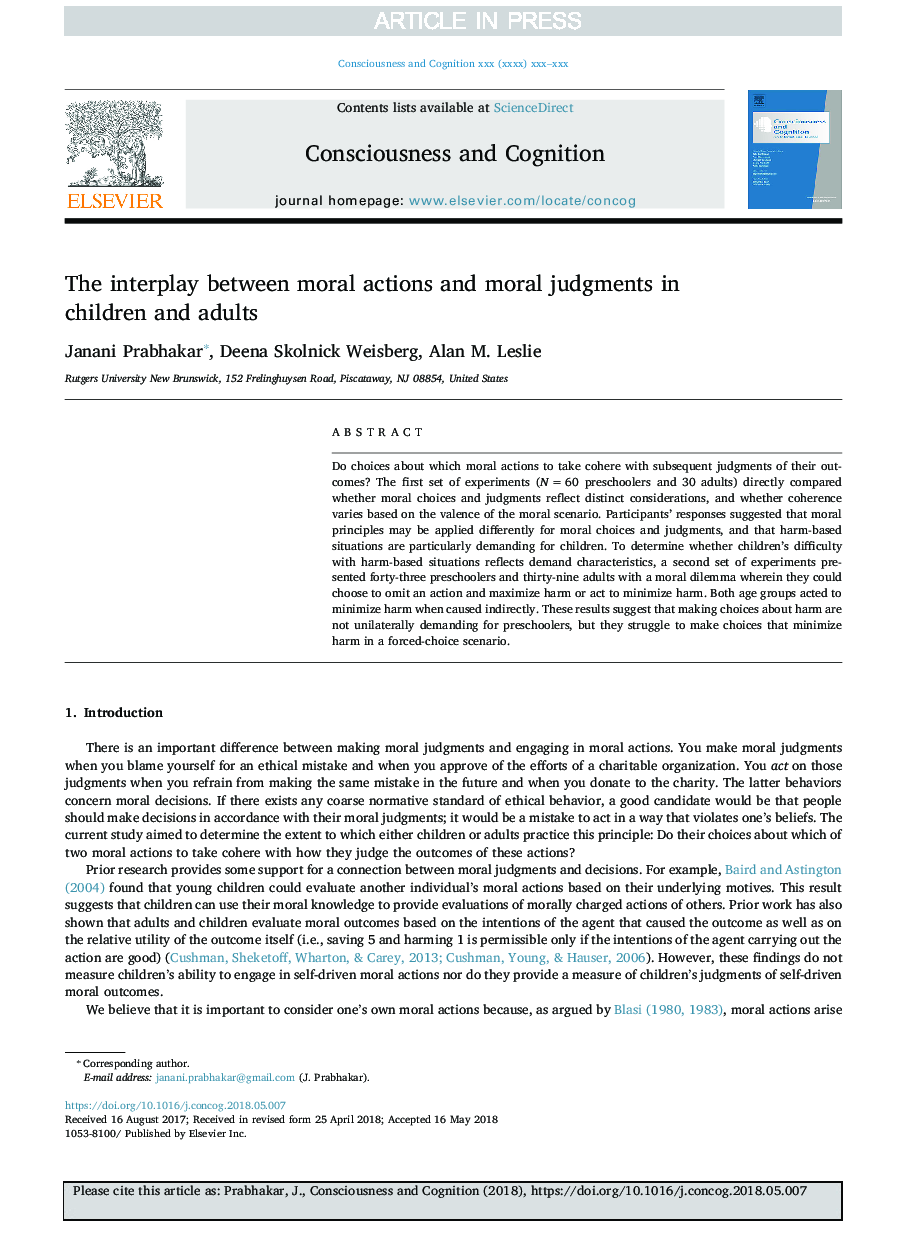| Article ID | Journal | Published Year | Pages | File Type |
|---|---|---|---|---|
| 7287801 | Consciousness and Cognition | 2018 | 15 Pages |
Abstract
Do choices about which moral actions to take cohere with subsequent judgments of their outcomes? The first set of experiments (Nâ¯=â¯60 preschoolers and 30 adults) directly compared whether moral choices and judgments reflect distinct considerations, and whether coherence varies based on the valence of the moral scenario. Participants' responses suggested that moral principles may be applied differently for moral choices and judgments, and that harm-based situations are particularly demanding for children. To determine whether children's difficulty with harm-based situations reflects demand characteristics, a second set of experiments presented forty-three preschoolers and thirty-nine adults with a moral dilemma wherein they could choose to omit an action and maximize harm or act to minimize harm. Both age groups acted to minimize harm when caused indirectly. These results suggest that making choices about harm are not unilaterally demanding for preschoolers, but they struggle to make choices that minimize harm in a forced-choice scenario.
Keywords
Related Topics
Life Sciences
Neuroscience
Cognitive Neuroscience
Authors
Janani Prabhakar, Deena Skolnick Weisberg, Alan M. Leslie,
